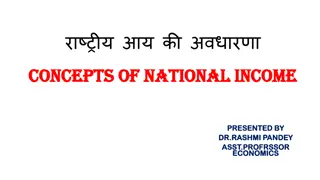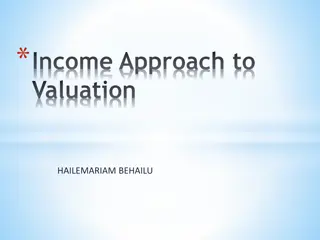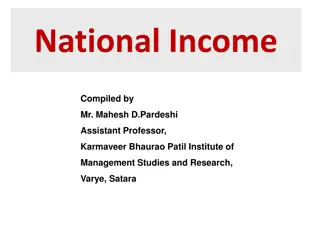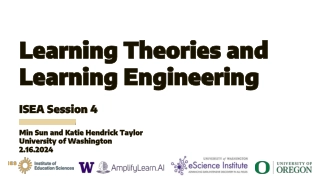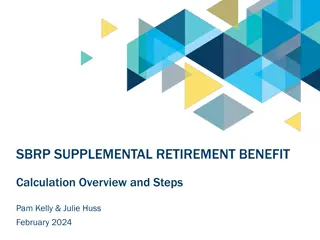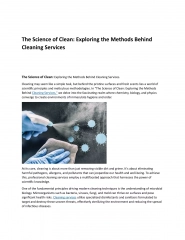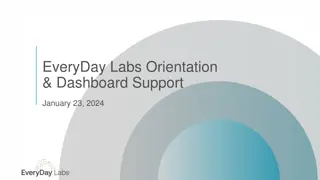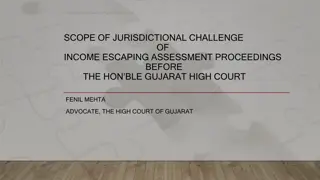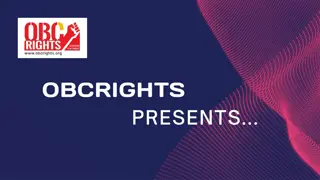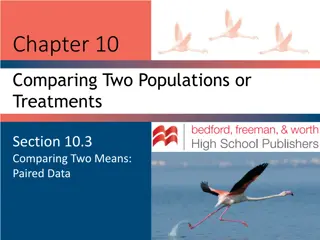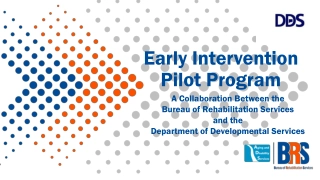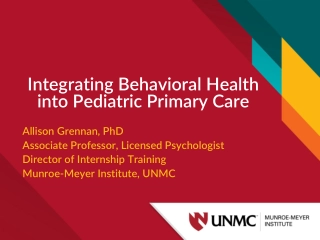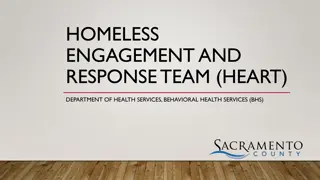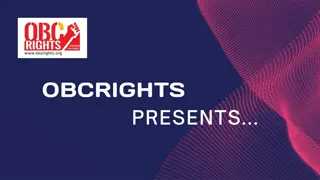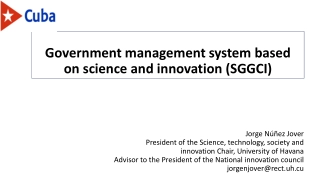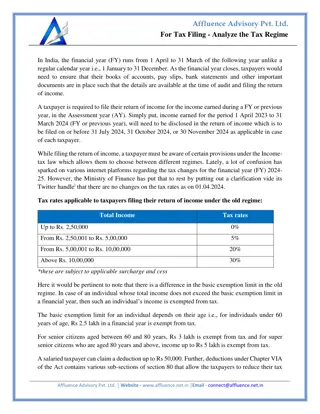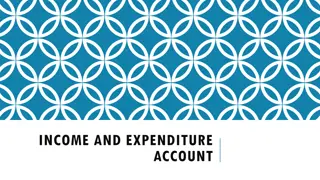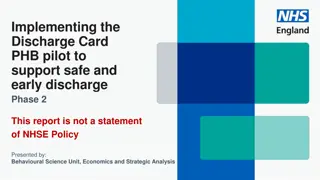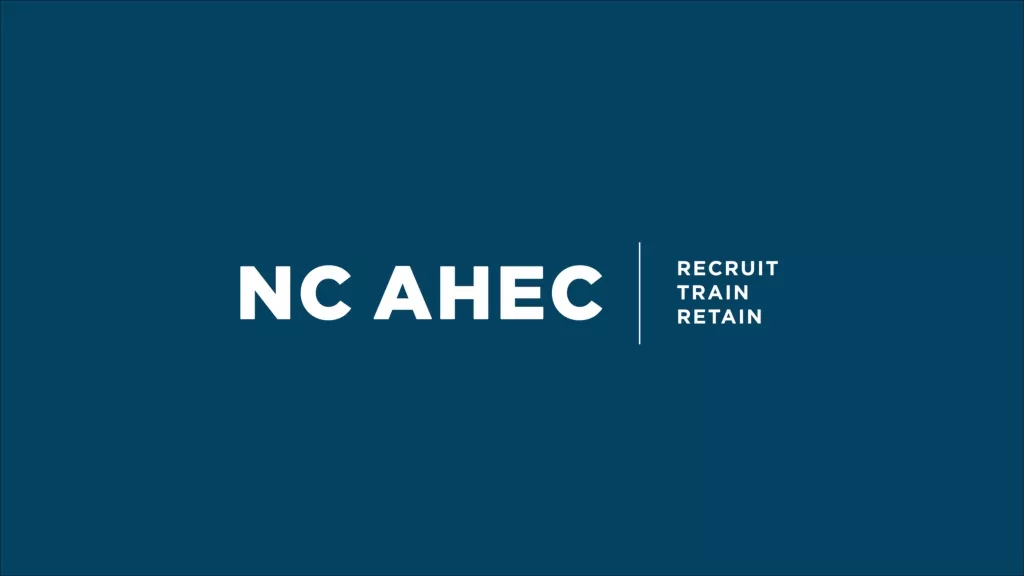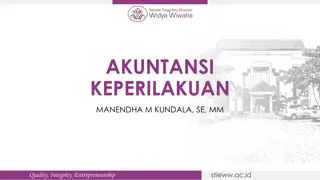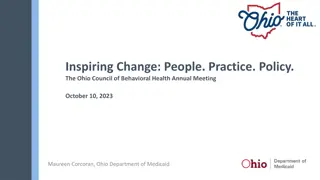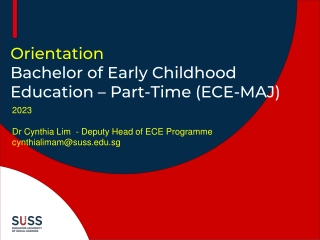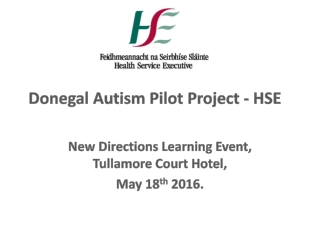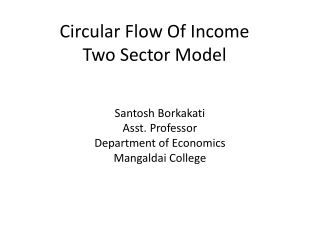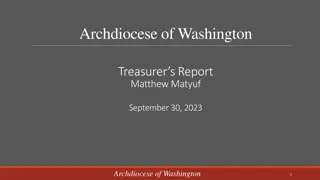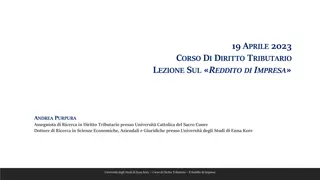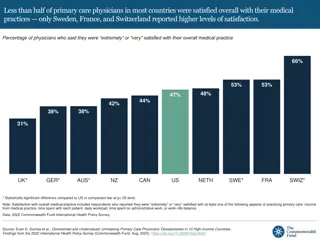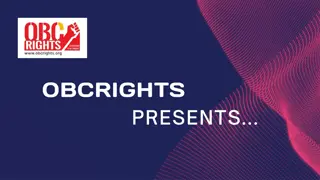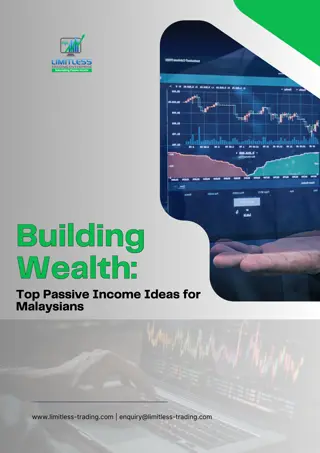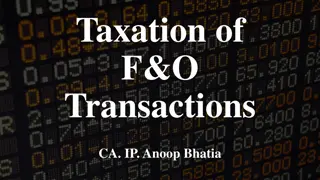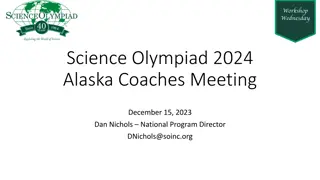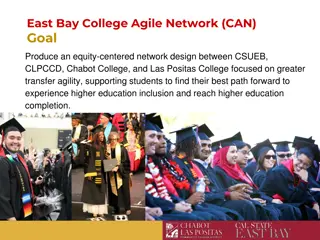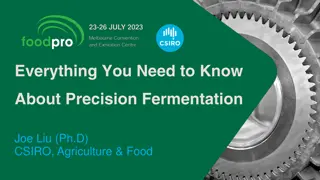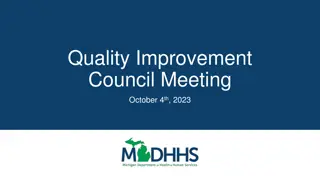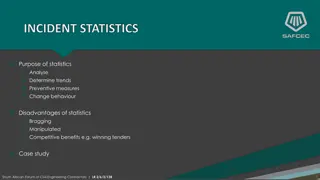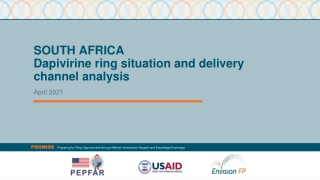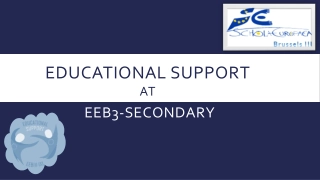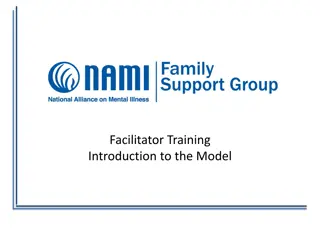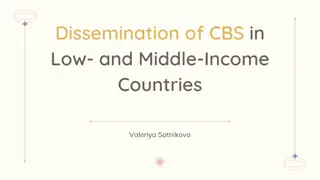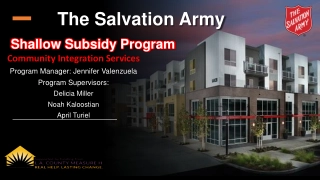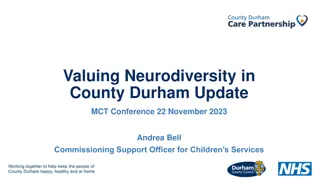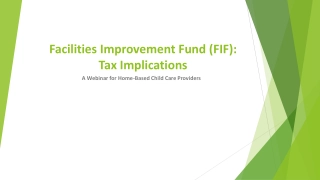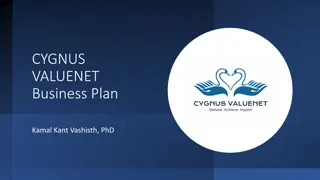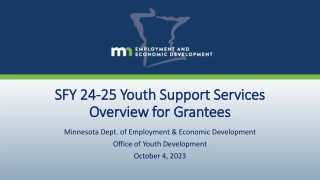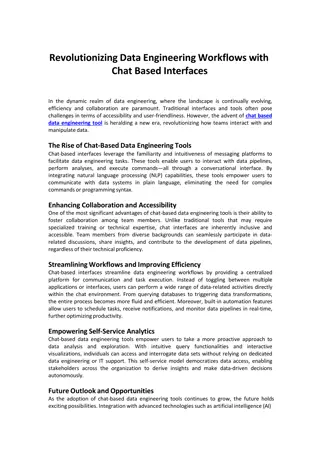Leveraging Behavioral Science for Income Support: A Place-Based Nudging Pilot
In this pilot program funded by WMCA, behavioral science is used to nudge residents in Northfield and Shard End wards to access income support services. The focus is on understanding communication modes, reactions, and subsequent actions of residents in response to targeted messages. Internal data analysis shows a strong link between foodbank voucher requests and accessing income-related welfare instruments. The intervention includes nudge messages tailored to the identified cohort, with comparisons between intervention and control groups for analysis. The approach ensures equitable treatment by adopting a Ceteris Paribus framework.
Leveraging Behavioral Science for Income Support: A Place-Based Nudging Pilot
PowerPoint presentation about 'Leveraging Behavioral Science for Income Support: A Place-Based Nudging Pilot'. This presentation describes the topic on In this pilot program funded by WMCA, behavioral science is used to nudge residents in Northfield and Shard End wards to access income support services. The focus is on understanding communication modes, reactions, and subsequent actions of residents in response to targeted messages. Internal data analysis shows a strong link between foodbank voucher requests and accessing income-related welfare instruments. The intervention includes nudge messages tailored to the identified cohort, with comparisons between intervention and control groups for analysis. The approach ensures equitable treatment by adopting a Ceteris Paribus framework.. Download this presentation absolutely free.
Presentation Transcript
Using behavioural science to nudge residents to access income support Updated January 2024 Early Intervention and Prevention PAGE 1 OFFICIAL
Introduction: Delivered a pilot to understand how behavioral science supports prevention, as part of WMCA funds which were awarded to the Early Intervention & Prevention Programme. Nudge an identified cohort to access Income Maximisation services provided by Homes & Money Hub. The key purpose of the pilot is to understand the mode of communication to respondents, their reactions and subsequent actions as a response to the messages delivered. PAGE 2 PAGE 2 OFFICIAL
The cohort: Internal data analysis indicated that Foodbank voucher assessment is one of the biggest reasons for citizen contact. Strong relation between Foodbank voucher requests and accessing support for income related welfare instruments like Universal Credit, LWP Crisis Card, and in seeking Council Tax Support. The cohort was identified from the Northfield and Shard End ward who have already contacted the council for foodbank vouchers. The cohort used either Web or both Web and Contact Centre as their medium of contact. Northfield and Shard End are selected as part of place-based approach due to resource, including staff support. PAGE 3 PAGE 3 OFFICIAL
Place-based Trial: Northfield and Shard End wards are identified as research locations for this pilot in line with a place-based approach. Northfield and Shard End are identified as Group 1, where the intervention (nudge messages) would be taking place. Northfield & Shard End Group 1 Place- based Approach Erdington would be Group 2 where the regular help and support would be offered to citizens, except the intervention. Citizens The responses to the intervention would be documented to understand the implications of interventions, which will be compared between both groups for an in-depth analysis. Erdington Group 2 PAGE 4 PAGE 4 OFFICIAL
The Ceteris Paribus: The biggest criticism towards experiments (control trails) is the criteria of selection towards treatment and control groups. In this case, as we are not implementing any direct benefit (monetary) (or) declining anyone to access the existing services, we can claim that we are not excluding anyone from exercising their social rights. Like mentioned above, we attempt to keep every operation related to HaM the same (like the current model), and we experiment the intervention at the treatment ward. The above all conditions establish that, all other conditions at both the wards are same while conducting the pilot, i.e., Ceteris Paribus PAGE 5 PAGE 5 OFFICIAL
The Intervention: Intervention The Nudge messages have been developed as part of the intervention. These messages would be distributed via SMS (GOV.UK Notify) The respondents who say yes will receive a phone call by a HaM staff member re. Income Max support Those who do not respond will receive a follow-up email to see if interest is secured using a different mode of communication Yes No Frame nudge messages No Intervention Nudge messages sent to respondents Respondents contacted by HaM Evaluation Evaluation PAGE 6 PAGE 6 OFFICIAL
Evaluation: The situation post intervention would be calculated using the responses the advisor notes when the citizen attend HaM. The qualitative interviews with Group 2 (Erdington) would further reveal the impact of the intervention as Group 1 individuals would narrate how it would have helped them. Upon collecting these evaluations and responses from both groups the pilot can capture the learnings and document them. Group 1 (Northfield & Shard End) responses to intervention Group 2 (Erdington) Qualitative Research Further qualitative responses Analysing the learnings Documenting the learnings PAGE 7 PAGE 7 OFFICIAL
The Nudge messaging PAGE 8 OFFICIAL
The COM-B model and SCALE approach application of behavioural science Specify Be specific about what you are asking people to do Consider Explore the barriers and facilitators of the COM-B model Assemble Write your content Layout Consider your layout Evaluate Plan your evaluation PAGE 9 PAGE 9 OFFICIAL
Learning from SCALE-led Focus group Communication Method Target Audience Current Behaviour Intended Behaviour How to do Actual Messages Who are currently in crisis, foodbank users, rent arrears, In temporary accommodation, In financial problems, Range of experiences, Stressed and worried, Language barriers in accessing services, Not in helpful situations, Individual/circumstantial responses and acknowledging those responses, Lack of experience, knowledge, and ability to self-help, Dependent on others, Stigma, Lack of information, Dealing with complexity of systems, Fear, and lack of trust Not of all of them have skills, reading and writing, linguistic skills as a barrier, varied awareness, some doesn t recognise barriers Self-help and seek early support and help, Having knowledge and being motivated, confident, video messages Can instil trust, Recognising themselves: Dear (First Name), Are you worried about rising Energy and Food costs and your well-being? Encourage people to access support, Easy, timely, and assured service, Normalising the challenge: We know that many of us are struggling with cost-of- living crisis. Success testimonials, examples Have barriers (digital exclusion), Hope and trust, Lack of knowledge and skills, Have past bad experiences, Physical barriers like disability and neurodiverse, have family members and peers as support, Range of identities, by religion, culture and ethnicity. Taking the stigma out The support we offer: If you are worried about how to make ends meet, or know someone who is, you can reach out and have a conversation with us. Ask about other issues that are affecting the citizen Using the benefits services as a motivation Reality driven operations (managing expectations) Motivation through a relatable case-study: The success testimonial (case study examples from pilot learnings and locale and generic) Translation skills and accessibility Understand (explaining) digital products Nudging them towards accessing the service PAGE 10 PAGE 10 OFFICIAL
The Nudge Message: Preliminary message from a BCC display number: Dear ((First name)) ((Last name)), in the next hour you will receive a message from Birmingham City Council's Homes and Money Advice team on 07860 034 456 (please note this number does not accept calls). This is a new service which has been set up to provide financial support to individuals and households in the city. Main text message: Recognising themselves: Dear ((First name)) ((Last name)), Are you worried about rising Energy, Food costs and your well-being? Normalising the challenge: We know that many of us are struggling with the cost-of-living crisis. The support we offer: If you are worried about your financial situation, or know someone who is, you can reach out and have a conversation with us. Motivation through a relatable case-study (include in email version only): In the past 6 months, our team has helped 128 households by connecting them to benefits and welfare support (case study examples from pilot learnings - local and generic). The testimonials using the simulations (ex: x number of people have used this service, we identified x amount of unclaimed benefits) Nudging them towards accessing the service: If you are interested in finding out more, please reply YES and someone will get back to you within five working days. Reply 'NO' to opt out, and to stop receiving further messages. Thanks, Homes and Money Advice Hub Trust the source of the message: This a no-cost service offered by Birmingham City Council which you can verify here: https://www.birmingham.gov.uk/cost-of-living PAGE 11 PAGE 11 OFFICIAL
The message PAGE 12 OFFICIAL
Results and Impact PAGE 13 OFFICIAL
Behavioural Science Pilot results - Total Construct Count Total citizens in cohort 170 Citizen falls into category of Phone/email not accepting messages right now and Phone/email does not exist 54 Total number of active citizens in cohort 116 Response received Number of unique citizens Total percentage Total response 43/116 37% Yes 39/116 33.6% No 4/116 3.4% No response 73/116 63% Over 94,000 estimated income maximisation being achieved, with the highest ranging from 21k-11k per individual, and an average of 3270 per individual PAGE 14 OFFICIAL
PAGE 15 OFFICIAL
PAGE 16 PAGE 16 OFFICIAL
Next Steps PAGE 17 OFFICIAL
Emerging findings and recommendations Development of further cohorts that will involve using other key datasets (beyond foodbank vouchers) such as rent and council tax arrears as determined by the service through learning from the pilot Award application submission for the behavioural science pilot PAGE 18 PAGE 18 OFFICIAL


